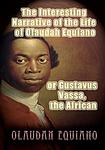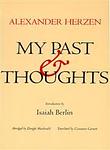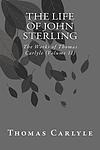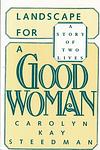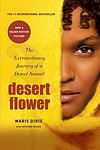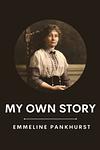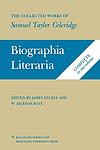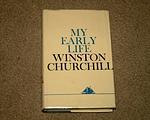The Greatest "Autobiography, United Kingdom" Books of All Time
Click to learn how this list is calculated.
This list represents a comprehensive and trusted collection of the greatest books. Developed through a specialized algorithm, it brings together 300 'best of' book lists to form a definitive guide to the world's most acclaimed books. For those interested in how these books are chosen, additional details can be found on the rankings page.
Genres
Autobiography is a literary genre that focuses on the life story of the author. It is a first-person account of the author's experiences, thoughts, and emotions, often including significant events and milestones that have shaped their life. Autobiographies can be written by anyone, from famous public figures to ordinary people, and can cover a wide range of topics, including personal growth, career achievements, struggles, and relationships. This genre provides readers with a unique insight into the author's life and perspective, making it a popular and engaging category of books.
Countries
Date Range
Reading Statistics
Click the button below to see how many of these books you've read!
Download
If you're interested in downloading this list as a CSV file for use in a spreadsheet application, you can easily do so by clicking the button below. Please note that to ensure a manageable file size and faster download, the CSV will include details for only the first 500 books.
Download-
1. Down and Out in Paris and London by George Orwell
This book is a semi-autobiographical work that explores the harsh realities of poverty in two of Europe's most renowned cities. The protagonist, a struggling writer, first experiences the squalor, hardship, and vagabond lifestyle of Paris, where he works menial jobs and often goes hungry. The narrative then shifts to London, where the protagonist lives as a tramp, navigating the oppressive rules of homeless shelters and the stigma of poverty. The book is a deeply empathetic and insightful exploration of the often invisible world of the impoverished.
-
2. The Interesting Narrative of the Life of Olaudah Equiano by Olaudah Equiano
This autobiographical book tells the story of an African man who was kidnapped from his homeland as a child and sold into slavery. The narrative follows his life as he is transported across the Atlantic, sold to various masters, and eventually purchases his own freedom. The book provides a detailed account of the horrors of the Middle Passage and the inhumane conditions of slavery, while also serving as a powerful testament to the human spirit's ability to overcome adversity.
-
3. A Writer's Diary by Virginia Woolf
This book is a collection of entries extracted from the personal diaries of a prominent 20th-century British novelist, providing readers with a unique glimpse into her artistic process, literary ambitions, and the daily preoccupations that influenced her work. Spanning over two decades, the diary entries offer an intimate portrait of her struggles with mental health, her opinions on contemporary literature, and her insights into the craft of writing. The book serves as a valuable resource for understanding the mind of a literary genius and the internal and external factors that shaped some of the most innovative fiction of the modernist era.
-
4. My Past And Thoughts by Aleksandr Herzen
The book is a rich and vivid memoir by a prominent Russian intellectual and revolutionary who lived through a period of profound social and political upheaval. It combines personal narrative with philosophical reflections, offering a penetrating look at the author's life experiences, from his aristocratic upbringing to his involvement in radical politics. The work delves into the author's ideological development, his relationships with key figures of his time, and his observations on the social issues and political movements that shaped the 19th century. It is a testament to the author's profound engagement with the ideas of freedom, justice, and human agency in the face of an oppressive regime and a changing world.
-
5. The World Of Yesterday by Stefan Zweig
The book is a poignant memoir reflecting on the transformative events and cultural atmosphere of Europe before World War I, through the interwar years and into the rise of the Nazis. It captures the author's experiences of growing up in a vibrant pre-war Vienna, the intellectual richness and artistic achievements of the time, as well as the profound sense of loss as the world he knew disintegrated into chaos and totalitarianism. With a mix of nostalgia and despair, the narrative serves as a lament for the lost world of European culture and as a warning about the fragility of peace and the human cost of war.
-
6. Chronicles of Wasted Time by Malcolm Muggeridge
"Chronicles of Wasted Time" is an autobiography that explores the life and thoughts of a British journalist and satirist during the 20th century. The book provides a critical perspective on the political and social changes of the time, including the author's experiences in India, Russia, and during World War II. The author also delves into his personal journey from agnosticism to Christianity, offering a profound reflection on faith and spirituality.
-
7. Diaries by Alan Clark
"Diaries" is a candid and often controversial collection of journal entries by a prominent British politician and historian. The book offers a unique insider's perspective on the UK's political landscape from the 1970s to the late 1990s. It is filled with the author's personal observations, experiences, and interactions with key political figures, providing readers with a rare glimpse into the inner workings of British politics. The author's sharp wit, colorful language, and unabashed honesty make this book a compelling read.
-
8. Life Of John Sterling by Thomas Carlyle
This biography chronicles the life of John Sterling, a lesser-known literary figure of the 19th century, exploring his intellectual pursuits, personal struggles, and the friendships that shaped him. The narrative delves into Sterling's quest for truth and meaning amidst the religious, philosophical, and social upheavals of his time. Through a series of letters, personal reflections, and accounts from those who knew him, the book paints a portrait of a man deeply engaged with the intellectual currents of his era, yet often at odds with himself and his health. The biography is as much a meditation on the challenges of leading a life of the mind in a turbulent era as it is a detailed account of Sterling's own endeavors, failures, and achievements.
-
9. My Father And Myself by J. R. Ackerley
The book is a posthumously published memoir that explores the complex relationship between the author and his father. The narrative delves into the author's journey of self-discovery, particularly regarding his own sexuality, against the backdrop of his father's secretive life. It reveals the author's quest to understand his father after his death, unearthing surprising truths and a parallel hidden life of homosexual liaisons, which mirrors the author's own experiences. The memoir is a poignant reflection on identity, family secrets, and the search for honesty and connection.
-
10. Good Company by Frances Partridge
"Good Company" is a reflective memoir that offers an intimate glimpse into the life of a central figure within the Bloomsbury Group, an influential circle of intellectuals and artists in early 20th-century England. The book weaves personal anecdotes, diary entries, and letters to paint a vivid portrait of the author's friendships, loves, and the cultural milieu in which she lived. It provides an honest and often poignant exploration of the author's relationships with key literary and artistic figures of the time, their shared experiences during the tumultuous years of the World Wars, and the enduring impact of these relationships on her life and work. The memoir stands as a testament to the power of intellectual companionship and the profound influence of community on individual creativity.
-
11. Bad Blood by Lorna Sage
"Bad Blood" is a memoir about a woman's escape from a repressive childhood in post-WWII Britain. The author recounts her experiences growing up in a dysfunctional family with a philandering vicar for a grandfather and a depressed and distant mother. Despite the bleak surroundings, she manages to find solace in literature and education, ultimately earning a scholarship to university. The book is a testament to the transformative power of education and the author's fierce determination to escape her past.
-
12. The History Of Mary Prince, A West Indian Slave by Mary Prince
This autobiographical account details the harrowing life of a woman born into slavery in Bermuda in the late 18th century. It vividly recounts her experiences of brutal treatment at the hands of various masters in the West Indies and her unyielding desire for freedom. As the first narrative of a black woman to be published in Britain, the book played a significant role in the anti-slavery movement, offering a powerful personal testimony to the cruelties and injustices of the slave system, and ultimately contributing to the abolitionist cause. Through her story, the author provides a voice to the countless enslaved individuals and highlights the resilience of the human spirit in the face of extreme oppression.
-
13. Enemies of Promise by Cyril Connolly
"Enemies of Promise" is a semi-autobiographical work that explores the challenges and obstacles that can hinder a writer's career and personal growth. The author divides these hindrances into two categories: the 'pram in the hallway', symbolising domesticity and family life, and the 'bore of the contemporary', representing the pressure to stay relevant and up-to-date. Through a blend of personal anecdotes, literary criticism, and social commentary, the book provides an insightful examination of the struggles faced by writers in their quest for literary success.
-
14. An Autobiography of Anthony Trollope by Anthony Trollope
This book is an autobiography of a renowned 19th-century British novelist, known for his insightful and detailed depiction of the social, political, and gender issues of his time. The author shares his personal journey, from his difficult childhood and struggles in early adulthood to his eventual success as a writer. He also provides a fascinating behind-the-scenes look at his writing process and the inspiration behind his most famous works. The autobiography offers a unique perspective on the Victorian era and its literary scene.
-
15. Love's Work by Gillian Rose
"Love's Work" is a deeply personal memoir that explores the life of a renowned philosopher as she grapples with her terminal cancer diagnosis. The book is a profound exploration of love, suffering, and the human condition, as the author reflects on her personal relationships, her career, and her Jewish faith. It is a philosophical and emotional journey that challenges readers to confront their own mortality and the complexities of human life.
-
16. Landscape For A Good Woman by Carolyn Kay Steedman
This book is a poignant exploration of the author's working-class upbringing in post-World War II Britain, intertwining personal memoir with social history. It examines the complex relationship between mothers and daughters, the impact of poverty on women's lives, and the societal expectations placed on women in the mid-twentieth century. Through a blend of historical analysis and autobiographical narrative, the author reflects on her own experiences to challenge traditional narratives about the working class, revealing the emotional and psychological landscape that shapes a woman's identity and aspirations.
-
17. Desert Flower by Waris Dirie, Cathleen Miller
"Desert Flower" is a powerful autobiography that tells the story of a girl born into a nomadic tribe in the Somali desert. The girl, subjected to the brutal tradition of female genital mutilation at a young age, escapes an arranged marriage at 13 and ends up in London, where she works various jobs before being discovered as a model. Her rise to fame in the fashion industry is juxtaposed with her personal journey to raise awareness about the harmful cultural practice she endured and advocate for its eradication.
-
18. The Autobiography Of John Stuart Mill by John Stuart Mill
This autobiography provides an intimate look into the life of a prominent 19th-century philosopher and economist, known for his influential works on liberty, utilitarianism, and political economy. The book traces his intellectual development, including his rigorous and often oppressive education under his father's tutelage, his mental health struggles, and his eventual emergence as a leading thinker. It also delves into his personal relationships, particularly the profound influence of a female companion on his work and thought. The narrative offers insights into the author's views on society, his contributions to political and social theory, and his enduring impact on philosophical discourse.
-
19. Nothing to be Frightened Of by Julian Barnes
This book is a memoir that explores the author's fear of death and his quest for meaning in life. It blends elements of autobiography, philosophy, and literary criticism, drawing on the author's personal experiences, his relationships with his family, and his thoughts on writers and philosophers who have influenced him. The narrative is marked by the author's wit, humor, and keen observations, offering a thoughtful and engaging exploration of mortality and the human condition.
-
20. My Own Story by Emmeline Pankhurst
"My Own Story" is an autobiography that chronicles the life and work of a prominent leader in the British suffragette movement, detailing her tireless struggle for women's voting rights in the early 20th century. The narrative offers a personal account of the political and social challenges faced by women activists, including the militant tactics employed, such as hunger strikes and civil disobedience, which often resulted in imprisonment. The author passionately articulates the motivations behind her activism, the sacrifices made, and the impact of her efforts on the eventual extension of suffrage to women, providing a compelling insight into the history of the fight for gender equality.
-
21. The Hare with Amber Eyes: A Family's Century of Art and Loss by Edmund de Waal
This book is a family memoir that traces the journey of a collection of miniature Japanese sculptures, called netsuke, through generations of a wealthy Jewish family. The narrative delves into the family's rise to prominence in the late 19th and early 20th centuries, their survival during the Nazi regime, their post-war struggles, and their eventual decline. The author uses the netsuke as a lens to explore the themes of art, loss, and family legacy.
-
22. Biographia Literaria by Samuel Taylor Coleridge
"Biographia Literaria" is a semi-autobiographical work that delves into the author's philosophical and critical thoughts. The book is a series of first-person narratives, conversations, and reflections, all of which are interspersed with the author's literary criticism and philosophy. The author discusses his personal experiences, his thoughts on the nature of poetry, and his analysis of contemporary literature. The work is notable for its exploration of the creative process and the nature of imagination.
-
23. My Early Life by Winston Churchill
This memoir provides a captivating look into the early years of a man who would become one of the most influential figures in British history. The book covers his childhood, his experiences at various schools, his time in India and his early political career. It also provides an insight into his experiences as a war correspondent in the Boer War. The narrative is filled with personal anecdotes, reflections, and a good dose of humor, offering a unique perspective into the formative years of this renowned statesman.
-
24. I, Claud by Claud Cockburn
"I, Claud" is a memoir that offers a humorous and insightful look into the life and adventures of Claud Cockburn, a renowned British journalist. Through a series of engaging anecdotes, Cockburn recounts his experiences from the 1920s to the 1940s, covering his work in various parts of the world, his involvement in significant historical events, and his interactions with key figures of the time. The book provides a unique perspective on the political and social dynamics of the era, all delivered with Cockburn’s characteristic wit and sharp commentary.
-
25. Autobiography by Bertrand Russell
The book is a reflective recount of the life of a prominent philosopher and mathematician, chronicling his experiences from childhood, through his academic career, to his relentless advocacy for peace and rational thought. The autobiography delves into his philosophical insights, personal relationships, and the profound influence of various historical events on his work and beliefs. It provides an intimate look at his struggles, achievements, and the intellectual and moral principles that guided his contributions to philosophy, logic, and the broader social issues of his time.
Reading Statistics
Click the button below to see how many of these books you've read!
Download
If you're interested in downloading this list as a CSV file for use in a spreadsheet application, you can easily do so by clicking the button below. Please note that to ensure a manageable file size and faster download, the CSV will include details for only the first 500 books.
Download
